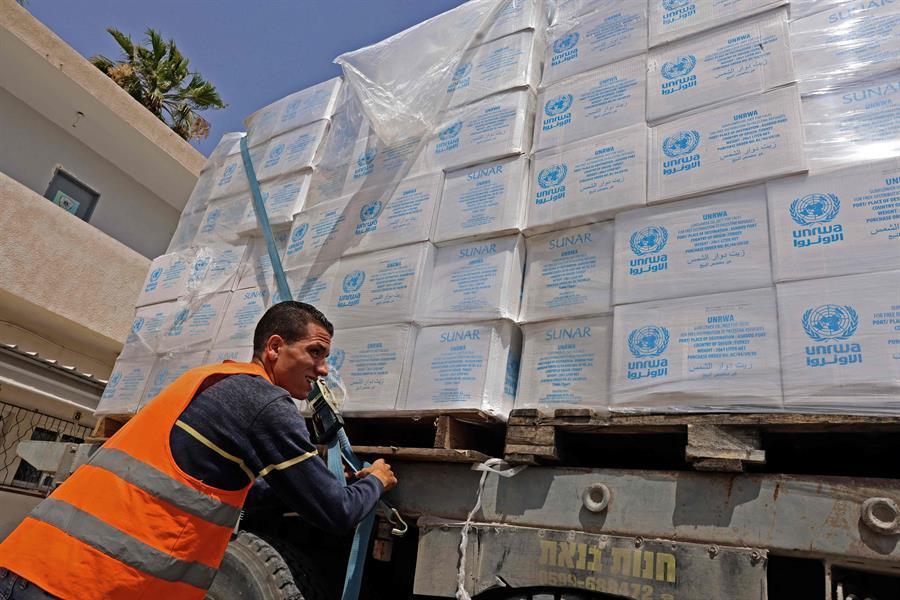
The ceasefire between Israel and Palestinians in Gaza was holding on May 22, as humanitarian aid began to enter the Israeli-blockaded enclave ravaged by 11 days of bloodshed.
As thousands of displaced Palestinians returned to their homes, and Israelis began to resume normal life on Friday, international focus turned to the reconstruction of the bomb-shattered Gaza Strip.
In Jerusalem, however, Israeli police cracked down on protesters at the highly sensitive Al-Aqsa mosque compound, in a sign of how volatile the situation remains, two weeks after similar clashes sparked the conflict’s worst escalation in years.
Israeli forces beat an AFP photographer who was covering the unrest there.
Clashes also broke out in several other parts of Israeli-occupied east Jerusalem, and at the crossing point between Jerusalem and the West Bank, Israeli police said, adding that hundreds of officers and border guards had been mobilised.
U.S. President Joe Biden said he had told the Israelis to stop "intercommunal fighting" in Jerusalem, and pledged to help organise efforts to rebuild Gaza.
He also stressed "we still need a two-state solution. It is the only answer, the only answer".
Convoys of lorries carrying aid began passing into Gaza through the Kerem Shalom crossing after it was reopened by Israel, bringing much-needed medicine, food and fuel.
The U.N.’s Central Emergency Response Fund said it had released $18.5 million for humanitarian efforts.
Tens of thousands of Gaza residents ventured out on Friday for the first time in days, checking on neighbours, examining devastated buildings, visiting the sea and burying their dead.
Rescuers there said they were working with meagre resources to reach any survivors still trapped under the rubble.
Nazmi Dahdouh, 70, said an Israeli strike had destroyed his home in Gaza City.
"We don’t have another home. I’ll live in a tent on top of the rubble of my home until it’s rebuilt," the father of five said.
In total, Israeli air strikes have killed 248 people including 66 children since May 10, and wounded 1,948 others, the health ministry has said. Fighters are also among those killed.
Large areas have been flattened and some 120,000 people have been displaced, according to Hamas.
Both sides claimed victory after the Egypt-brokered truce, which also included Gaza’s second most powerful armed group, Islamic Jihad.
World leaders welcomed the truce.
"I believe we have a genuine opportunity to make progress and I’m committed to working toward it," Biden said.
The European Union echoed his call for a two-state solution to the conflict.
The U.S. State Department said top diplomat Antony Blinken would "meet with Israeli, Palestinian and regional counterparts in the coming days to discuss recovery efforts and working together to build better futures for Israelis and Palestinians".
Russia and China called for a return to peace talks, and U.N. chief Antonio Guterres said Israel and the Palestinians must now have "a serious dialogue to address the root causes of the conflict."
He too called for "robust" reconstruction aid.